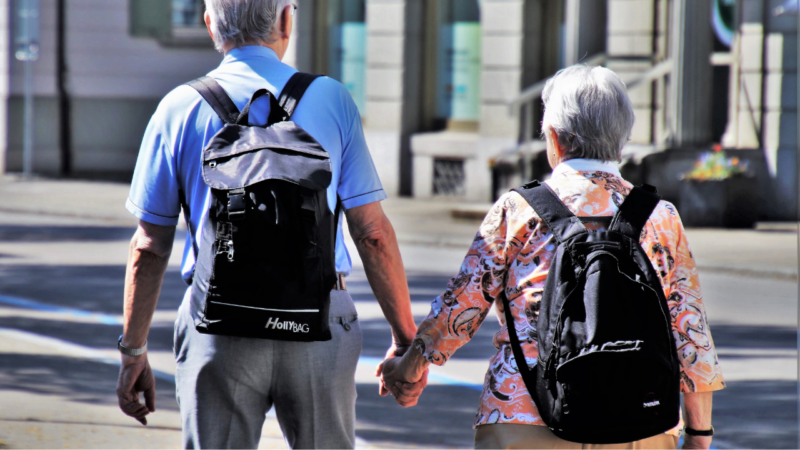An example of what we can still accomplish by keeping fit and active into our senior years, here’s the incredible story of veteran marathon runner Fauja Singh.
Fauja was born in Punjab, India, in 1911. As a young man, he was a keen amateur runner but did not pursue his passion until the 1990s, after he moved to England. At 89 years old, he decided to return to running and finished his first race, the London Marathon, in 2000.
Since then, he went on to compete in several marathons, setting several world age-group records – including becoming the first 100-year-old to finish a marathon.
This and the countless other anecdotes we hear working with our incredible seniors are living proof that age is not a limitation when it comes to your potential to maximise health and fitness.
Age and fitness – why do we lose fitness and strength as we age
As we grow older, we experience changes in work capacity, endurance, power, strength, agility, and coordination. This is partly due to natural changes that occur as part of the aging process. However, these do not normally occur in isolation – they are usually accompanied by physical inactivity.
Cardiovascular fitness is the ability of your heart, blood vessels and lungs to transport blood and therefore provide the oxygen your body needs for day-to-day activities. As we age, our maximum heart rate and ability to use oxygen in physical activity decreases.
This is due to changes within the heart and how we use oxygen around the body for everyday function. In fact, for a sedentary 80-85-year-old, completing basic day-to-day activities can exceed their functional capacity.
Muscular strength is necessary for any activity that requires movement.
Muscles are made up of fibres, and as we age, there is both a reduction in both the number and thickness of these muscle fibres, causing weakness. From age 30, your overall strength declines by 3-5% per decade. There is a greater decline in lower limb than upper limb strength, with quadriceps strength declining about 10% per decade.
So this is a link between age and fitness – the decline in strength.
This weakness is associated with an increased risk of falls, fractures, and bone density loss.
You might have heard your physiotherapist telling you that doing exercises will help to keep you strong, and help you to stay mobile, safe and happy for as long as possible – but what is the truth?
Can we do anything to lessen the changes that come with aging?
Absolutely! Just as physical inactivity can worsen the natural losses that come with aging, physical activity – exercise in particular – can improve or maintain both your cardiovascular fitness and strength.
Your fitness levels can be improved regardless of your starting point. So while strength decreases with age, it can be improved with training.
You may be surprised to find that with the same relative intensity of aerobic exercise, people over 65 make very similar improvements in their fitness compared with younger people under 30 years old.
In studies of people taking a 12-week aerobic exercise program, those over 65 made very similar increases in their maximal ability to use oxygen in physical activity. This shows that you can improve your overall blood flow and fitness through exercise.
When comparing sedentary to exercise-trained men and women, your capacity for physical activity is significantly higher over 65 years old if you have exercised throughout your lifetime.
So it is not just a matter of age and fitness, but a matter of fitness over time.
However, even if you haven’t been consistently active throughout your younger years, making improvements in cardiorespiratory fitness is nevertheless associated with living a longer life.
Participation in regular physical activity leads to increases in life expectancy by limiting chronic disease development and progression and decreasing age-related strength loss. So when thinking about age and fitness, there are two major benefits for those over 65 who participate in physical activity:
- Decreasing risk of falls by improving balance, postural stability and confidence
- Disease prevention and management by increasing your bone density and improving your heart health.
So although we can’t change our age, we now know that we can improve our fitness at any age!
Interested in knowing more?
The Physio Co provides physiotherapy for elderly Australians, please call on 1300 797 793 or email [email protected] 🙂



 1300 797 793
1300 797 793